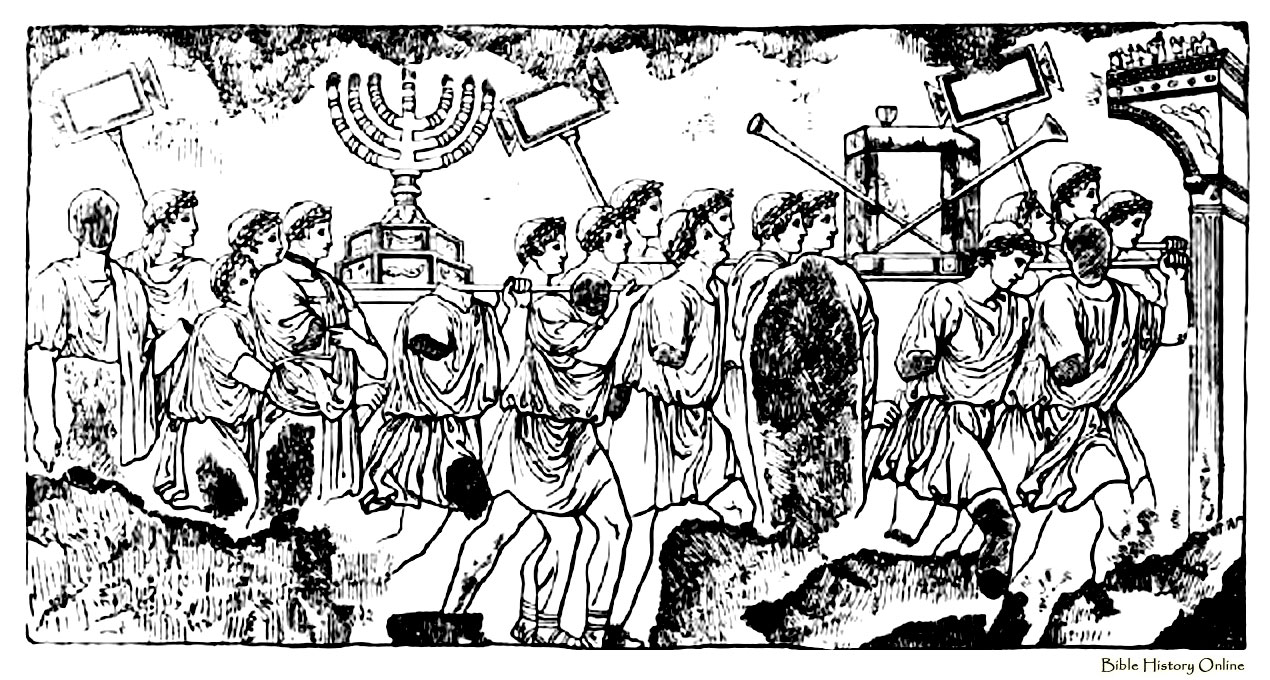
In 70 AD the Romans laid siege to Jerusalem and utterly destroyed and buried one of the greatest cities of the ancient world. This was all predicted by Jesus in the New Testament approximately 40 years prior.
Source:

In 70 AD the Romans laid siege to Jerusalem and utterly destroyed and buried one of the greatest cities of the ancient world. This was all predicted by Jesus in the New Testament approximately 40 years prior.
Source:
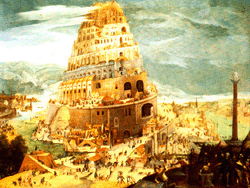
Babylon is Akkadian “babilani” which means “the Gate of God(s)” and it became the capital of the land of Babylonia. The etymology of the name Babel in the Bible means “confused” (Gen 11:9) and throughout the Bible, Babylon was a symbol of...
There are five primary sources for the study of the Second Temple in Jerusalem, the Temple of Herod. They are: The BibleThe Books of MaccabeesJosephus*The Dead Sea ScrollsThe Mishna** *War book 5, chapter 5; Antiquities book 15 chapter 11**tractates ...
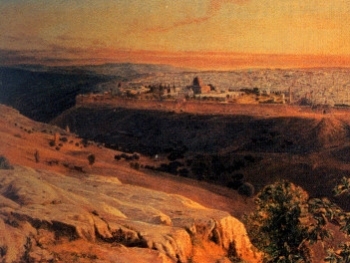
The main sources available estimate that the population of those living in Jerusalem during the time of Jesus was probably around 80,000 to 100,000 citizens. But during the Passover hundreds of thousands of Jews from the Diaspora would pour into Jeru...
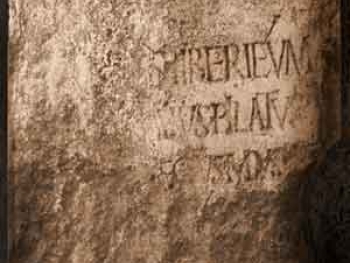
The Pilate Inscription is an inscribed relief with a dedicatory inscription to Tiberius Caesar bearing the name Pontius Pilate. It was discovered among the ruins of ancient Caesarea Maritima. It is the only known occurrence of the name Pontius Pilate...
In the Bible, a watchtower, also known as a lookout or watchman's tower, was a raised structure used for surveillance and observation. It served as a strategic vantage point from which watchmen could keep watch over the surrounding area, looking out ...
According to the biblical account in Exodus 14, the Israelites crossed the Red Sea during their escape from Egypt. When they reached the shores of the sea, Moses stretched out his hand, and God caused a strong east wind to blow all night, parting the...
In the Bible, an alabaster jar refers to a type of container made from alabaster stone. Alabaster is a soft, white or translucent mineral often used in ancient times for crafting vessels or containers for various purposes. One notable mention of an a...

The ancient sun dial reveals the hours in a day. It has a surface with hour lines and a stick or gnomon which casts a shadow as the sun advances in its daily course. The sun dial is mentioned in the Bible as far back as the time of King Ahaz. Herodot...
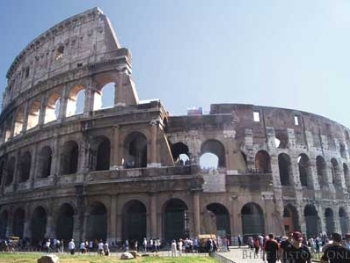
The Colosseum was known in ancient Rome as the Flavian Amphitheatre, named after the 3 emperors who were all involved in its construction. Vespasian conceived the idea and began building in 72 AD and his son Titus dedicated it in 80 AD with a 100 day...

In Christianity, Jesus is the One true God who came to earth clothed in human flesh. In Greek and Roman mythology Zeus (Jupiter) was a celestial deity, and one of many gods. Zeus was the chief of the gods of Olympus, and he was the son of Saturn and ...
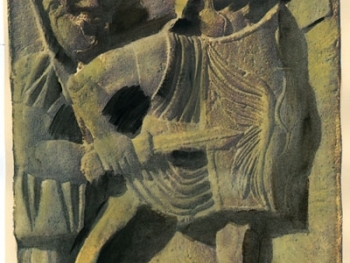
Augustus, the first emperor of Rome had in his empire 25 legions of approximately 6,000 soldiers each. A legion was formed of 10 Cohorts (540 men in each Cohort). Each Cohort was subdivided into 6 Centuries (90 men formed a Century), and each legion ...
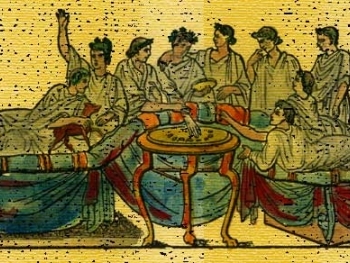
The ancient Hebrews, Egyptians, and Greeks. used to eat sitting on mats spread on the floor. The Romans actually reclined on couches around a table. The couches were arranged forming three sides of a square. The open side was for the servants who wou...

Among the Dead Sea Scrolls discovered in 1947 was found the “Scroll of Isaiah” inside of a clay jar and well preserved, dating to the 2nd century BC. The entire Hebrew text of the prophet Isaiah was found in “perfect” condition. When compared...
The main powers in ancient Rome were Carthage, Greece, and Etrura. The Italian Peninsula is located right in the heart of the Mediterranean Sea. Rome is located right in the heart of Italy on a large plain known as Latium. Source: Latium and Geo...

The Passover Papyrus is a letter from among the elephantine papyri that dates back to the time of Darius II, in 419 BC. In 1907 archaeologists discovered in Aswan papyrus fragments of a letter that bears the royal authority of the Persian Empire (not...
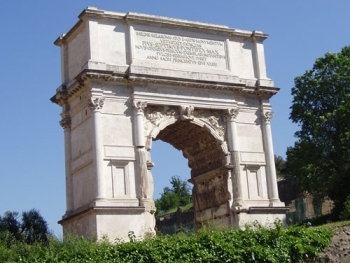
The Arch of Titus is one of Rome’s most famous monuments. It was built to commemorate the victories of Titus and Vespasian in the war against the Jews and their complete destruction in 70 AD. One wall relief inside the arch shows the spoils of the...
The Hostile Plough was used by the Romans to utterly destroy a city by burying and removing it. When the Romans were brought to wrath it was customary to drive a plough over the walls of a conquered city to signify that the ground on which it stood s...
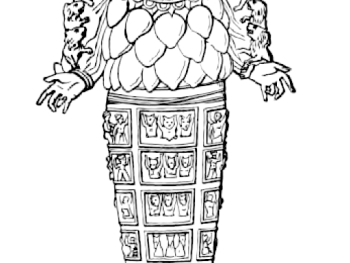
In the Temple of Artemis also referred to as Diana the statue of the Roman goddess was depicted as covered entirely with breasts. This is because Diana was the goddess of fertility, and the multi-breasts were denoting fertility, nourishing the living...
Welcome to Free Bible: Unearthing the Past, Illuminating the Present! Step into a world where ancient history and biblical narratives intertwine, inviting you to explore the rich tapestry of human civilization.
Discover the captivating stories of forgotten empires, delve into the customs and cultures of our ancestors, and witness the remarkable findings unearthed by dedicated archaeologists.
Immerse yourself in a treasure trove of knowledge, where the past comes alive and illuminates our understanding of the present.
Join us on this extraordinary journey through time, where curiosity is rewarded and ancient mysteries await your exploration.




